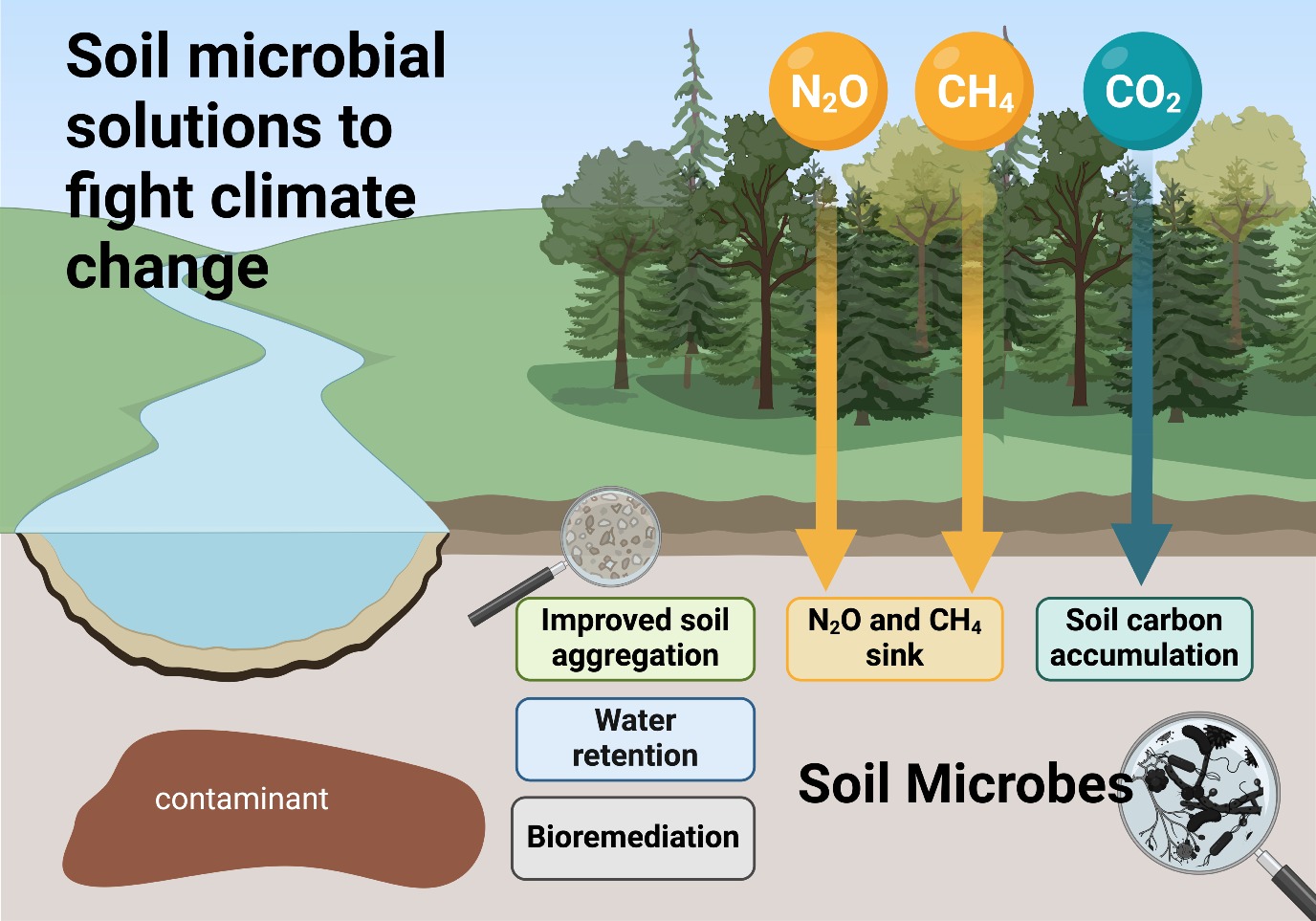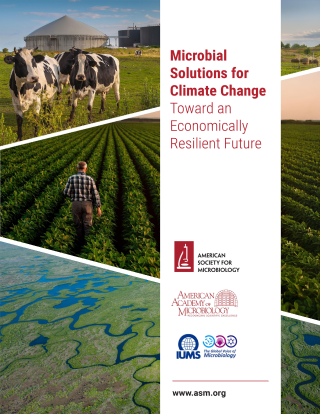Micro-organismen tegen klimaatverandering
Micro-organismen kunnen op verschillende manieren helpen in de strijd tegen klimaatverandering. Dat is de boodschap van een rapport dat onlangs is gepubliceerd door de International Union for Microbiological Societies (IUMS) en de American Society for Microbiology (ASM). Onderzoekers van de RUG hebben eind vorig jaar dezelfde conclusie getrokken, en werken al aan het omzetten van kooldioxide in nuttige producten met behulp van bacteriën.
FSE Science Newsroom | René Fransen
In het rapport presenteren IUMS en AMS drie terreinen waarop innovaties met behulp van micro-organismen ons kunnen helpen bij de aanpassing aan klimaatverandering. Microben zijn te gebruiken om 1) een niet fossiele koolstof-economie op te zetten, bijvoorbeeld door chemische bouwstenen te maken uit kooldioxide; 2) de voedselzekerheid te vergroten en ecosystemen te stabiliseren, en 3) de uitstoot van het sterke broeikasgas methaan te verminderen.
Een op wetenschap gebaseerde klimaattascforce

Het rapport weerspiegelt daarmee de inhoud van een artikel van onder anderen RUG-hoogleraar microbiologie Joana Falcao Salle, dat afgelopen november is gepubliceerd in het tijdschrift Nature Microbiology. ‘De belangrijkste boodschap van ons artikel is dat micro-organismen oplossingen kunnen bieden die ons kunnen helpen om klimaatverandering tegen te gaan’, aldus Falcao Salles.

In dit artikel benadrukt zij met haar medeauteurs dat het effect van micro-organismen op het klimaat cruciaal is, maar vaak wordt genegeerd. Daarom pleiten ze voor de oprichting van een wereldwijde, op wetenschap gebaseerde klimaattaskforce waarin microbiële ecologen bijdragen aan de ontwikkeling en implementatie van microbiologische oplossingen op basis van ecologische kennis.
Een samenvatting van dit artikel is te vinden op de nieuwspagina’s van de Faculty of Science and Engineering (het tweede bericht in de lijst).
Al in 2023 hebben twee onderzoekers van de RUG laten zien hoe het mogelijk is kooldioxide om te zetten in nuttige producen: Bodembacterie maakt eiwitten en geneesmiddelen van kooldioxide en Vliegen op kooldioxide: Jingxiu Xie combineert katalyse en chemische technologie om kerosine te maken.
Meer nieuws
-
17 februari 2026
De lange zoektocht naar nieuwe fysica
-
10 februari 2026
Waarom slechts een klein aantal planeten geschikt is voor leven
